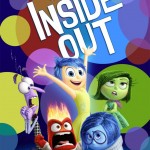Danish director Lars von Trier gave us a remarkable, audacious film in 2004 called Dogville. The film starred Nicole Kidman, Paul Bettany, Anne Bancroft, and a supporting cast of familiar faces, but it also demanded our own participation. The story played out on a stage decorated with a few props and chalk outlines that told us where the houses, streets, and other important landmarks were.
The film told the story of a gangster’s daughter, Grace, who happens upon a small town and, during her visit, brings out the worst in everyone through her innocence and servanthood.
Manderlay is the sequel to Dogville. And while it features a similarly impressive cast, takes place on another sparsely decorated stage, and explores even more ambitious ideas, it brings out more than the worst in its characters — it brings out the worst in Lars Von Trier.
First, it’s worth noting that Manderlay falls short ofDogville‘s arresting technical effects. The camerawork is merely functional this time, not particularly provocative in how it frames the action. The lighting is strangely glossy and even unpleasant in the way it makes its characters seem cold and distant, where the characters in Dogville were very much alive. Jon Hurt is our narrator again, but this time his script lacks the sly wit that gave Dogville such a sting.
In short, this feels like a sequel that was made in a hurry.
Most importantly, Dogville conveyed Von Trier’s respect for his actors; he let them keep their dignity while he told a story of depravity. Here, he requires things of his cast that go beyond the bounds of responsibility and decency. You may find yourself either feeling sorry for young Bryce Dallas Howard, who takes over Kidman’s character of Grace, or disappointed in her willingness to go along with her director’s subversive instructions.
This time, the story follows Grace to a Southern Alabama plantation called Manderlay where she seeks to liberate a number of slaves from a mean-spirited old woman. Discovering a book in which the old woman categorized her slaves in dehumanizing and horrifying ways, Grace is determined to restore dignity and humanity to the abused and disrespected laborers. But as she introduces democracy, teaches them to vote, and encourages self-reliance in each one of them, it quickly becomes clear that Grace is less sure of what she is doing this time. Her good intentions are leading her to much bigger mistakes than she made inDogville.
Howard does an excellent job portraying an arrogant, obstinate young woman who means well but lacks wisdom. She gives us a powerful picture of American arrogance and the dangers that come with intervening forcefully in nations where we have little grasp of what is really happening, where we have bad ideas about what’s really broken and how to fix it. When she grows impatient with their willingness to repair their leaking houses, she instructs them to cut down a row of trees, astonished at what she interprets as laziness and lack of imagination. But when the trees are gone and a dust storm sweeps in to destroy the crops, we begin to see just how presumptuous and hasty she has been.
That’s thoughtful, if obvious, editorializing on American presumption.
But the story about Grace’s intervention goes beyond that into alarming, grotesque investigations of Grace’s sexuality. When she becomes attracted to one of the blacks at Manderlay, Von Trier seems to shift from cultivating healthy questions to something quite unhealthy indeed — it seems he wants to punish this symbol of America’s naiveté by stripping her and humiliating her on camera. That Howard was willing to go along with this is even more disappointing. Such material is likely to spoil any suspension of disbelief, and distract us with thoughts about the director and the actress. Instead of thinking about the story, we’re questioning Von Trier’s sense of decency.
Meanwhile, none of the African American characters ever develop into respectable, complicated, three-dimensional human beings, which is troubling as well.
There is a lot of talk in Manderlay, but eventually it just feels like an elaborate charade enabling Von Trier to unleash further contempt toward America. And in the end, he goes beyond exposing American weaknesses — he ends up embarrassing himself with an extremely narrow, contemptuous view of America, and flagrant contempt for admirable values that people bravely seek to preserve, defend, and cultivate around the world.
Dogville made me think about corruption, selfishness, innocence, grace, and judgment. Manderlay raises interesting questions about what can happen in a democracy when its people are deeply corrupt. But instead of drawing me into the drama of its characters, it makes me worry about Von Trier. Watching it is like watching the devil laugh as the innocent seek to do good and stumble into snares of their own making. We might learn a thing or two, but we’re likely to be left more disheartened than enlightened.
–
Writer/director: Lars von Trier. Director of photography: Anthony Dod Mantle. Editor: Molly Malene Stensgaard. Art director: Peter Grant.Producer: Vibeke Windelov. Starring – Bryce Dallas Howard (Grace), Isaach De Bankolé (Timothy), Danny Glover (Wilhelm), Willem Dafoe (Grace’s Father), Michael Abiteboul (Thomas) and Lauren Bacall (Mam). IFC Films. 138 minutes. Rated R.










